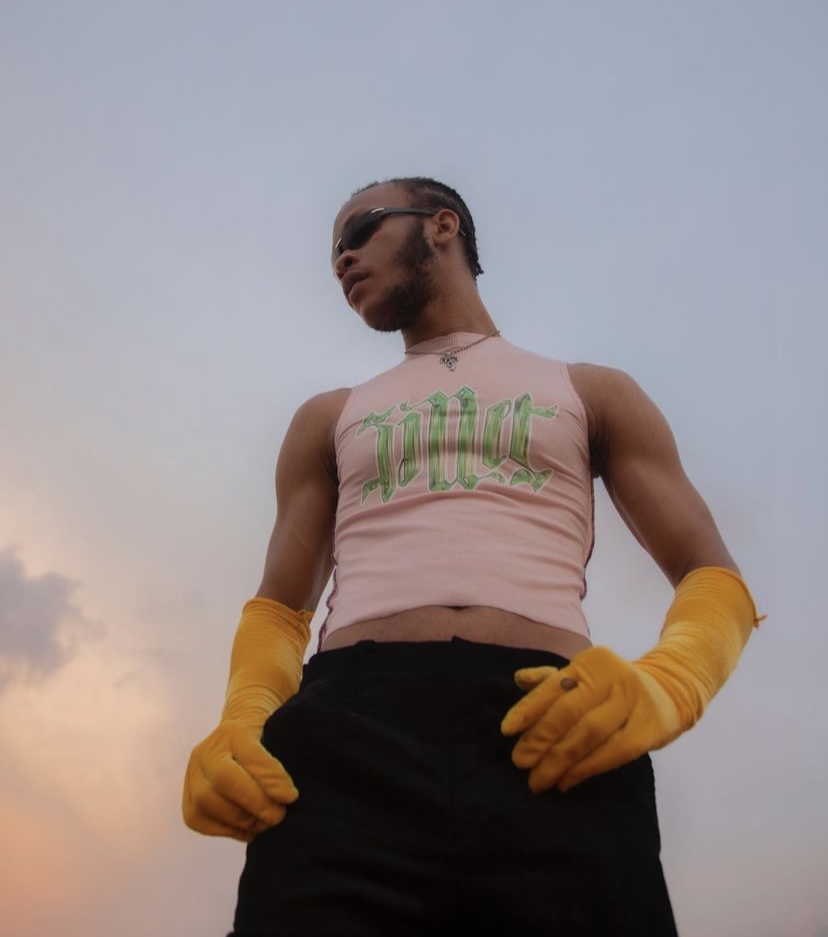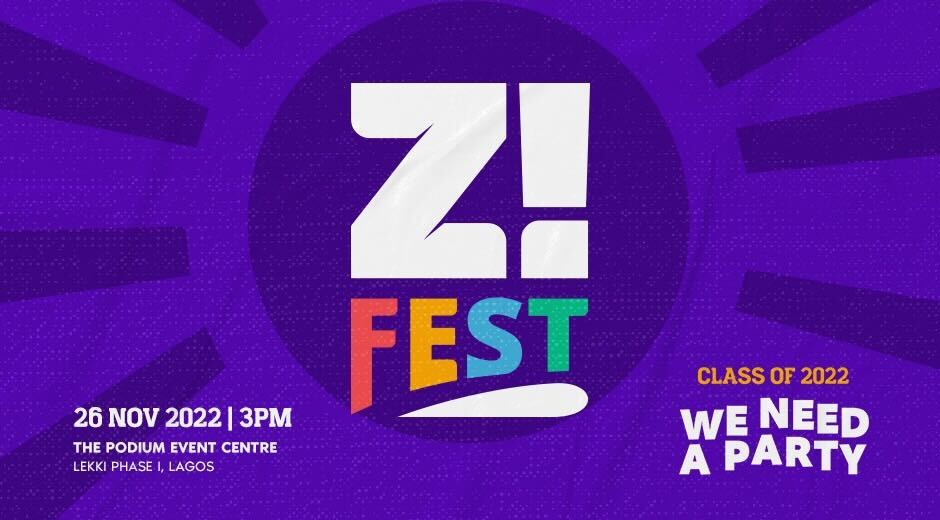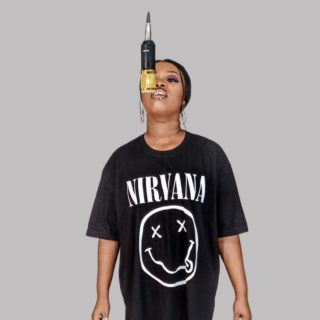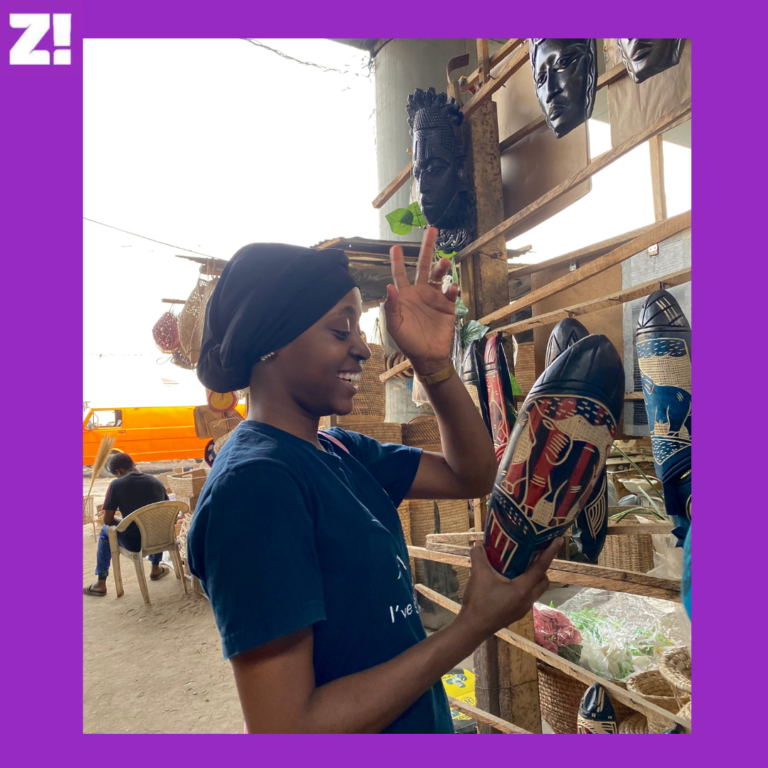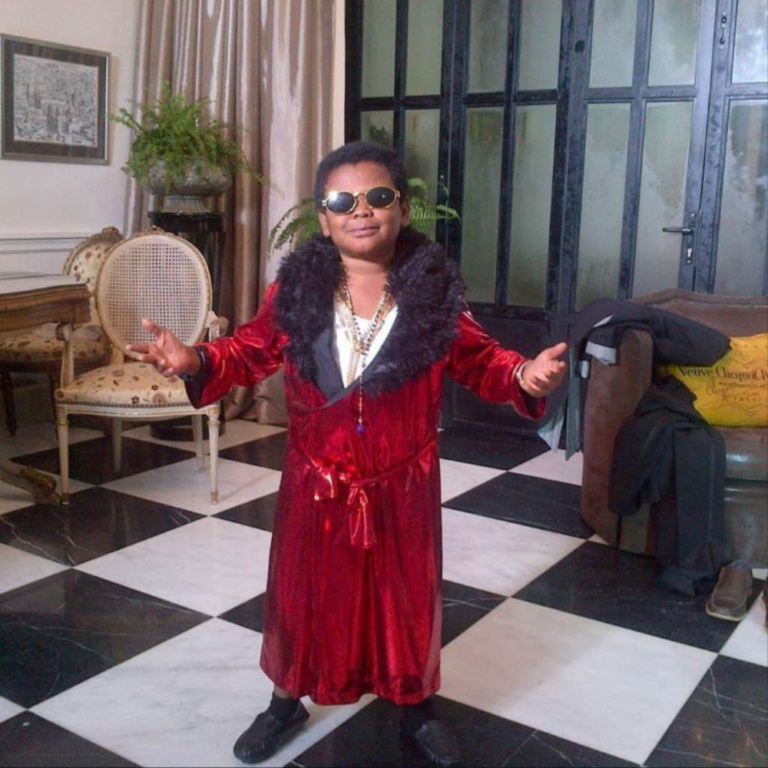Creator Spotlight is a weekly series celebrating young Nigerians in the creative industry doing unique things. Everyone has a story, and Zikoko wants to tell it.
Hi, I’m Bryan Ibeh. I’m in my second year at Unilag. I’m a self-taught creative director and experimental filmmaker. I’m also into photography, I make music sometimes, and I model. I guess something weird about me is that I like nuts — peanuts, almonds and pistachios. My favourite place to be is the beach.
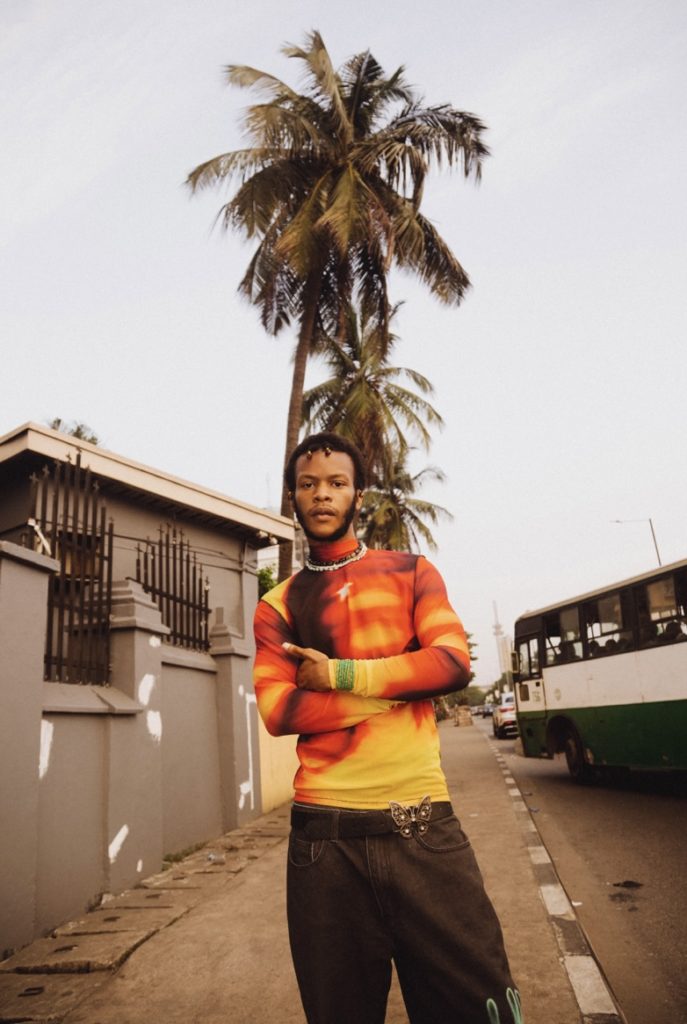
How did you start as a creative director?
I’ve always just had an interest in the arts which my parents supported. My dad was an artist, so I grew up in an arts-accepting home. I had my family’s support in any interest I had, from fashion to music. I didn’t know what I wanted to do until I turned 16, which was when I started making films and exploring my creative direction. I taught myself every day and practised constantly. Even though it seemed like I was just playing around, I’ve made something out of it.
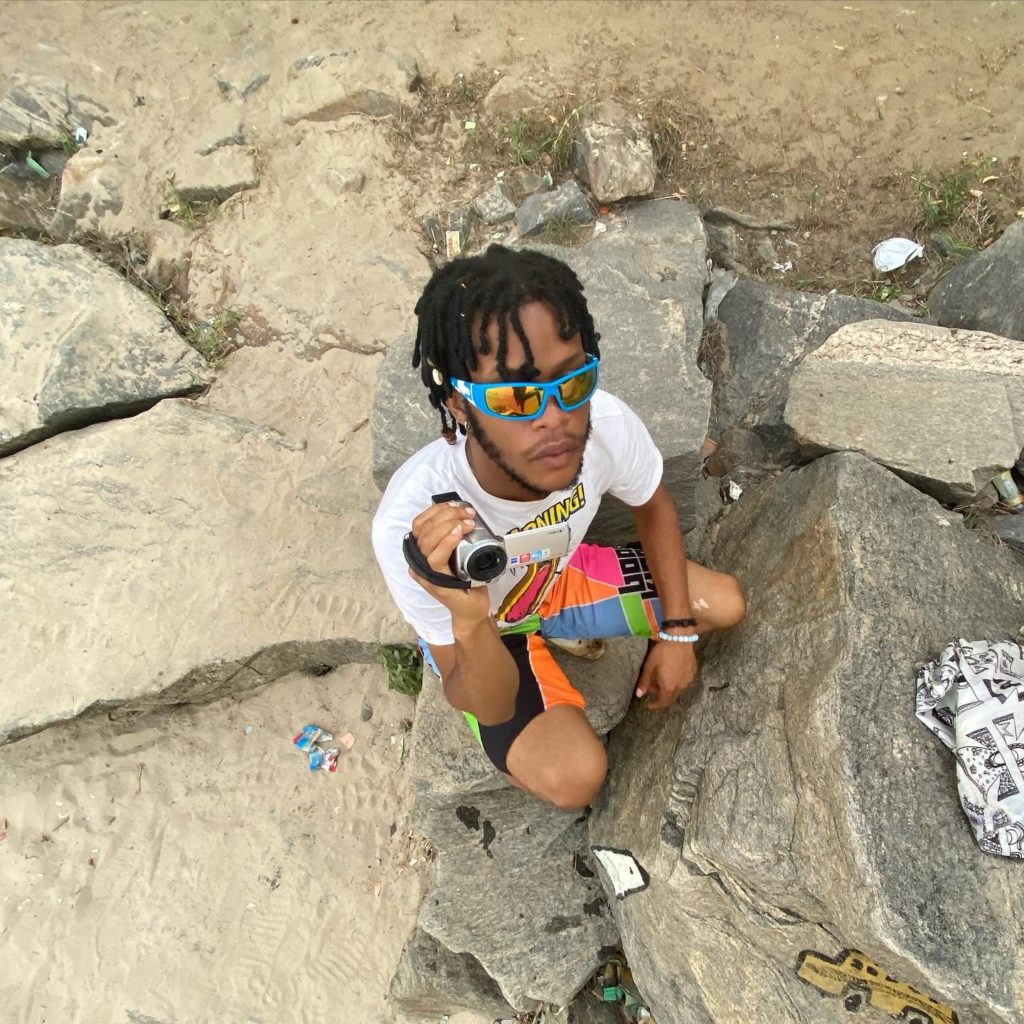
What was so significant about you turning 16?
I was fresh out of high school, so I completely reinvented myself, physically and spiritually. One thing I discovered was a love for film. It came naturally. I’d film birds, cars or people. I’d think of a song that would go perfectly with it and make a video. I also met my now best friend of three years. She was just starting in the underground music scene, so I gave her ideas for cover art direction and then music video ideas. Back then, we would play around and make fun music videos and promotional visuals for her. That was my first experience with creative directing and experimenting.
You did these for free?
Yes, because it was a collaborative effort. I can’t even call it my work, per se. My friend and I would hang out. While they were playing their music, I’d have an idea for a video, and we’d go outside and shoot something. It happened organically. At the time, I wasn’t thinking about the big picture. I was still discovering what my art should look like.
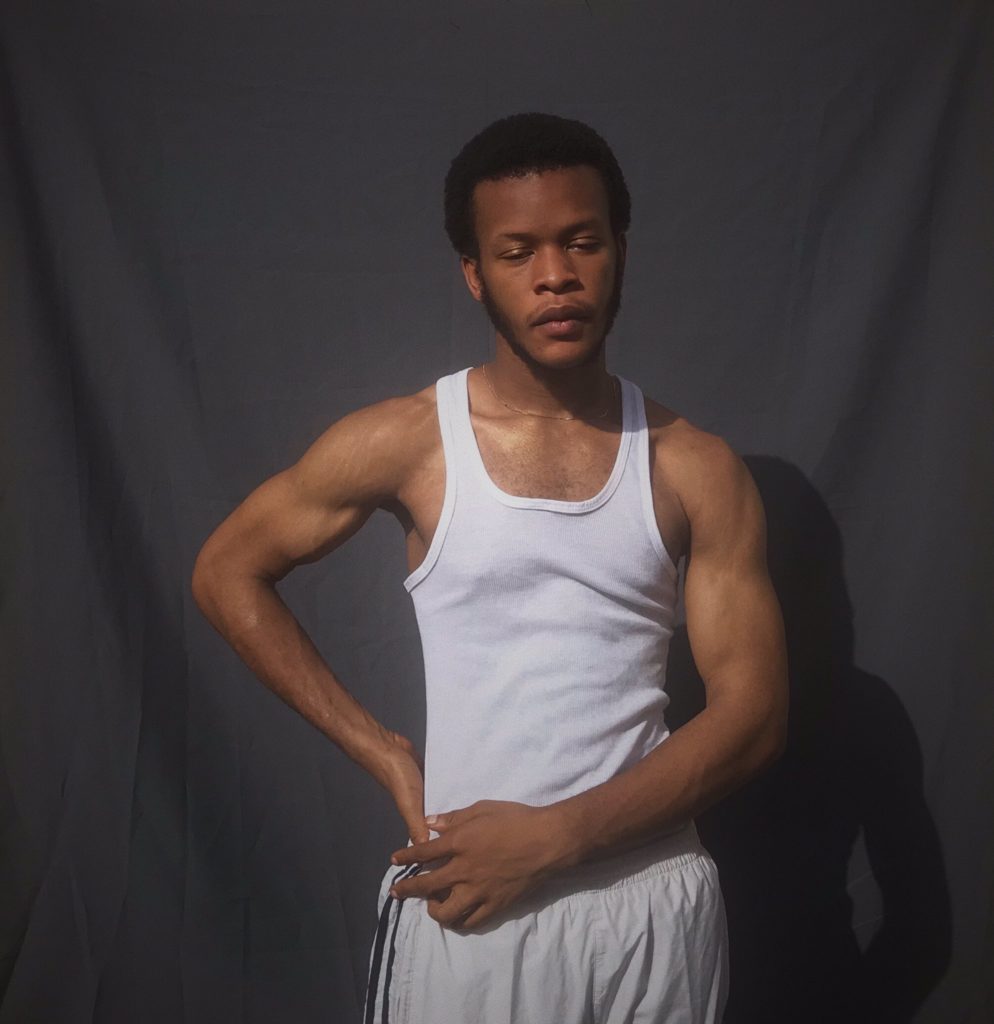
Would you consider your best friend your muse?
All my friends are my muses. But yes, she was one of the very first.
How would you describe your aesthetic?
I’d say experimental, very avant garde. I like to experiment with odd, abstract elements. I centre my work in nature. For example, if I were making a music video, I would use exaggerated colours and strange lighting to create a very otherworldly experience.
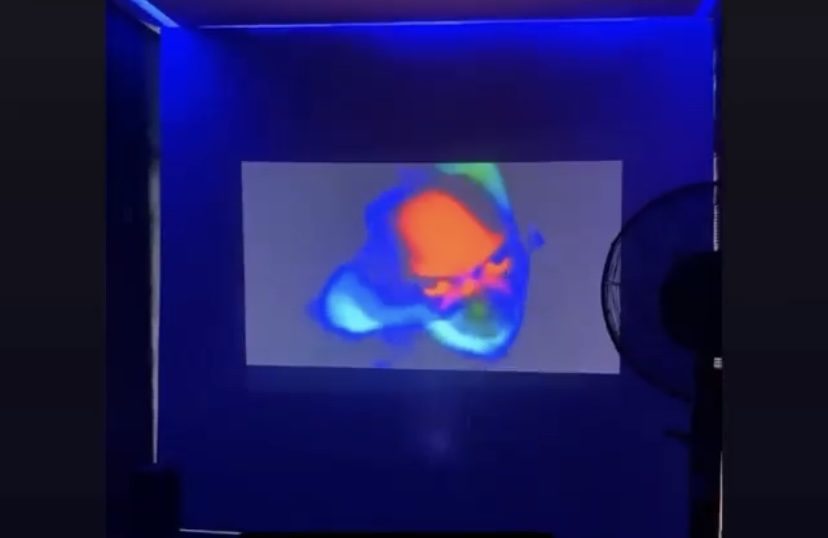
What has your work looked like since then?
I recently released a fashion film on NATAAL Media, titled, “We Are Looking for Ourselves in Each Other”. It’s an experimental film and a great representation of my work. Recently, I worked with a talented artist named Julrity, on visuals for her single, “BahtShit”. I’ve done other things with more contemporary, underground talents in Lagos.
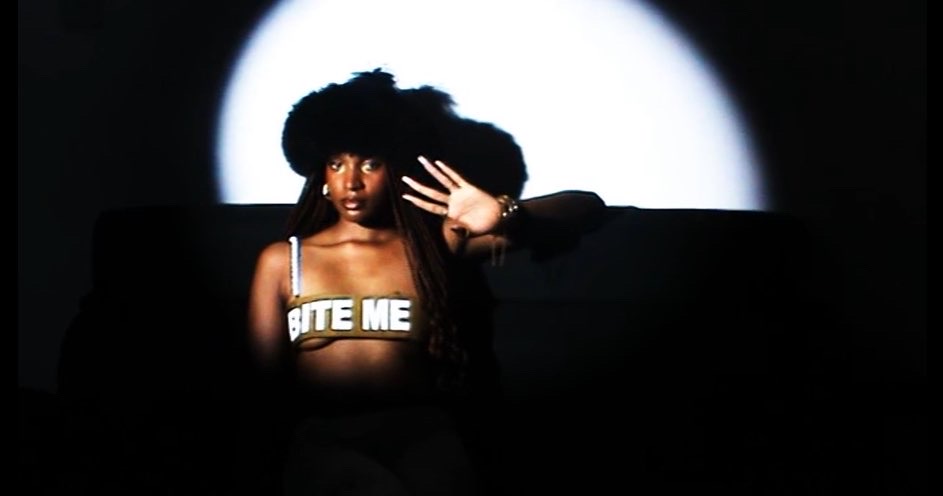
Who else have you worked with?
I recently worked with another creative director and a stylist, Seun Odebunmi, on a project titled, “Villain Identity”. It was an editorial photo shoot I coloured and edited for. I also worked on another experimental music video with another upcoming artist, Snt Rei, and created some experimental, meditational films for a showcase I did last year, called Expo Lagos.
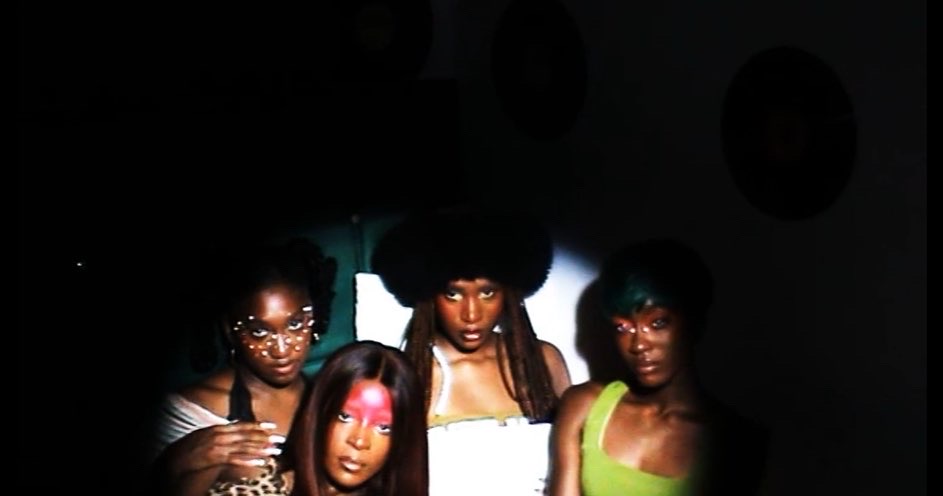
What are you studying in school? Does it influence what you do?
I’m studying Mass Communication, so yes.
How do you juggle school with all this ?
I haven’t had to juggle a lot because the universe has been in my favour. Earlier this year, I had a nine-to-five in the creative industry, and ASUU went on strike, so that was perfect. After I left to focus on freelancing in July, ASUU was still on strike. Now that school is back in session, my parents keep telling me I can combine my work with school. It would be a challenge for sure, but I’m in too deep now, so I have no choice. Once you’re on a trajectory, you must keep climbing to establish yourself.
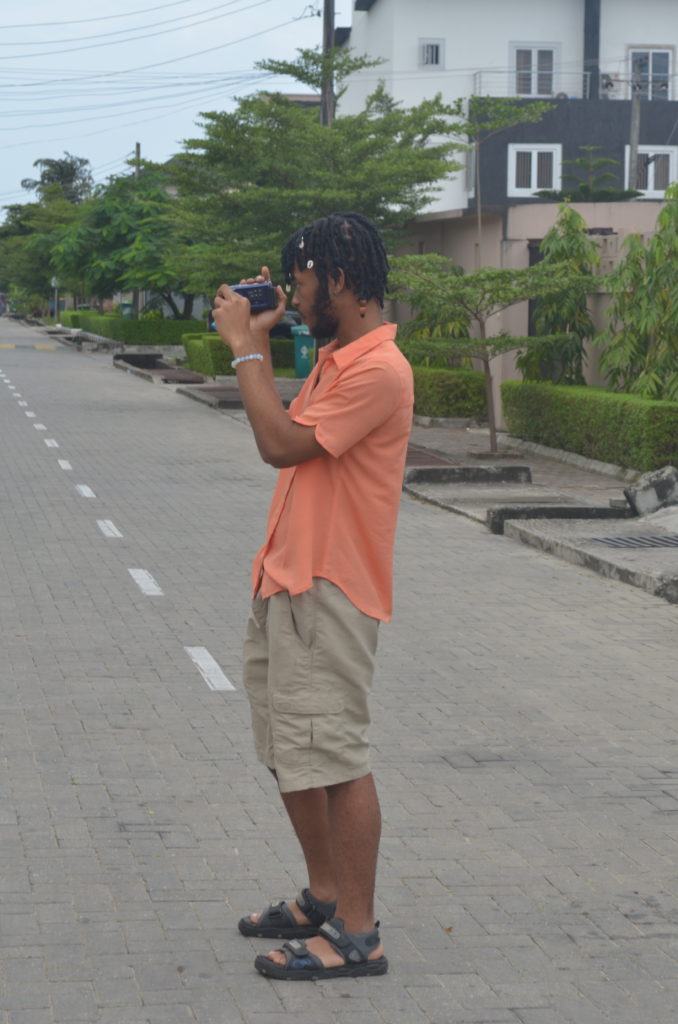
What was growing up in an artistic family like?
My dad was an R&B artist. I like to live my life separate from that fact, but it was cool and entertaining growing up. We would go to award shows, fashion shows, concerts and music video shoots. My first time on my dad’s music video set, I was four or five years old. While I wasn’t featured in it, my older sister was.
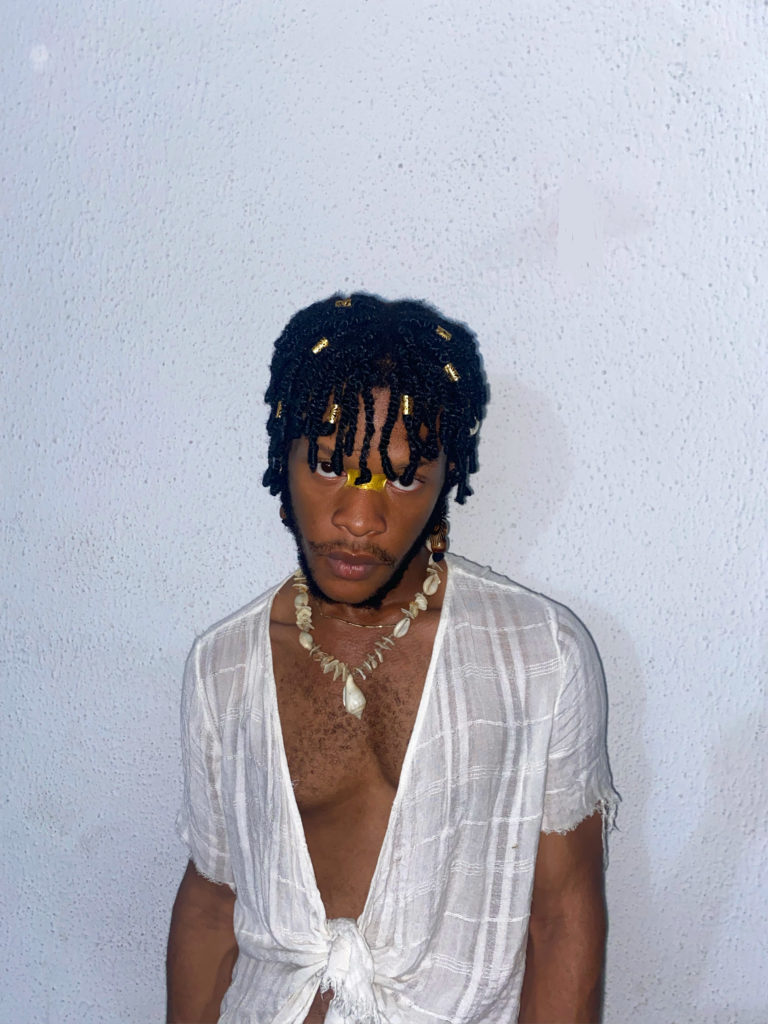
So you’ve always had a video camera around to play with?
I wish. That sounds like a better story, but my dad was a musician, so it was mainly about the music. It encouraged my interest in art, and I thought I’d be a musician for a while, but it’s now just one of the many things I do. My parents have been very supportive.
What does their support look like?
I’m self-reliant, so I don’t ask my parents for much help. Their support is primarily moral. They understand I’m an adult and are more lenient about the things that can come with this line of work, especially fashion-wise. They also offer advice with the business aspect of my career.
Who are your biggest filmmaking influences?
I don’t have any influences. I love a lot of different films and my work definitely takes from many places, but I’ve never felt like someone influences my work. My life experience influences the work I do.
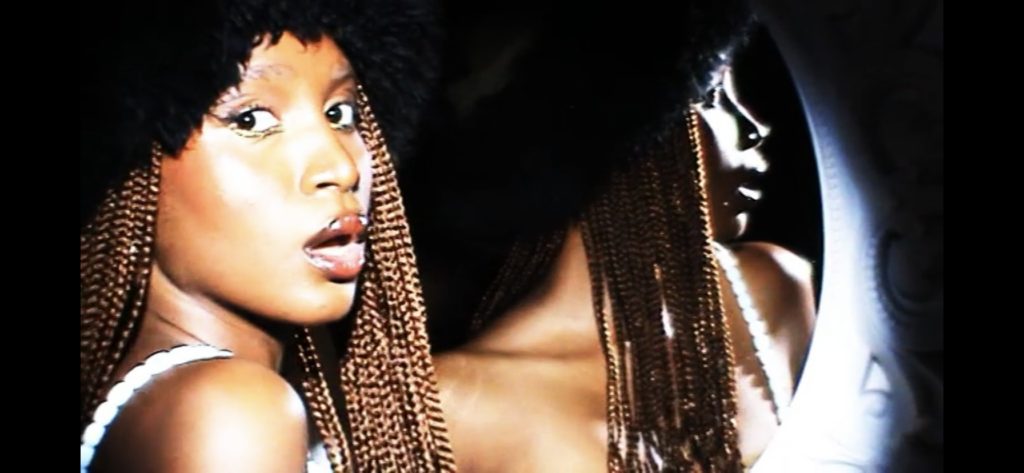
What about people you’d like to work with?
I’d like to work with Rema, SOLIS, Odunsi and Obongjayar. When I listen to a song, and the song is good, I start conceptualising. SOLIS is one of those musicians for me. I remember just watching the video of her first single back-to-back and thinking about the beautiful video we could have made for this song. With Odunsi, wanted you is one of my favourite songs. I wish I could’ve worked on the music video with him.
What’s your creative process like?
With the music videos, usually, I’d draw out the themes of the song and picture what the general story idea would be. But with film, I’m very experimental. I compose anything that looks visually appealing and explore that as much as I can.
How long does it take for you to create a film?
It depends on the project itself and what goes into it. The fashion film I released recently was shot about two months ago but released three weeks ago.
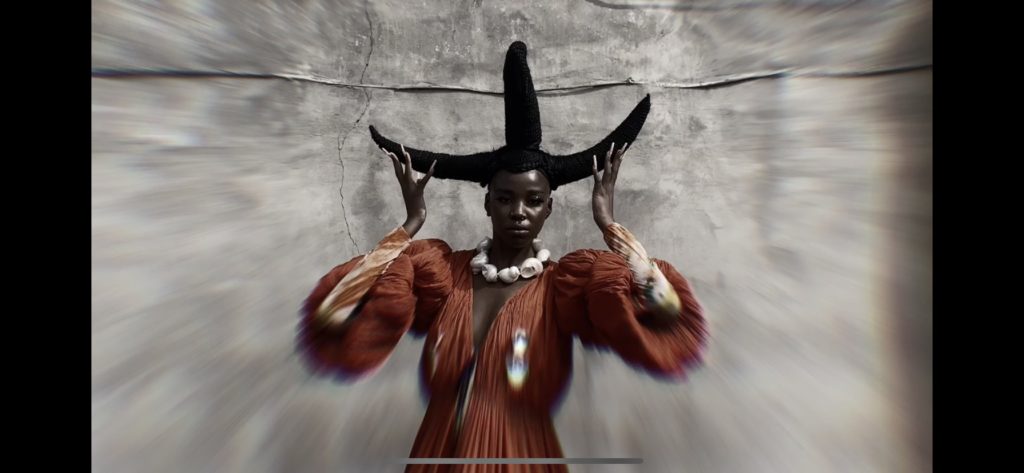
How much do you spend on a set?
The one thing about being an independent creative is you can make do. Some sets are very self-providing. Everyone contributes to the production in a way. If it’s the clothes, they could belong to a friend. The model could be a collaborator, but sometimes, I pay for models, rent lights and possibly a camera. You must bring a crew because production is a bunch of moving parts. Some projects are more cost-effective than the rest. The “Bahtshit” music video was probably the most expensive production I’ve done, but I can’t disclose the amount.
What do you do when you aren’t conceptualising video ideas?
I listen to a lot of music. I love to make beads in my spare time. I love to style myself and people. I love to go out with my friends; I go to a lot of EDM raves.
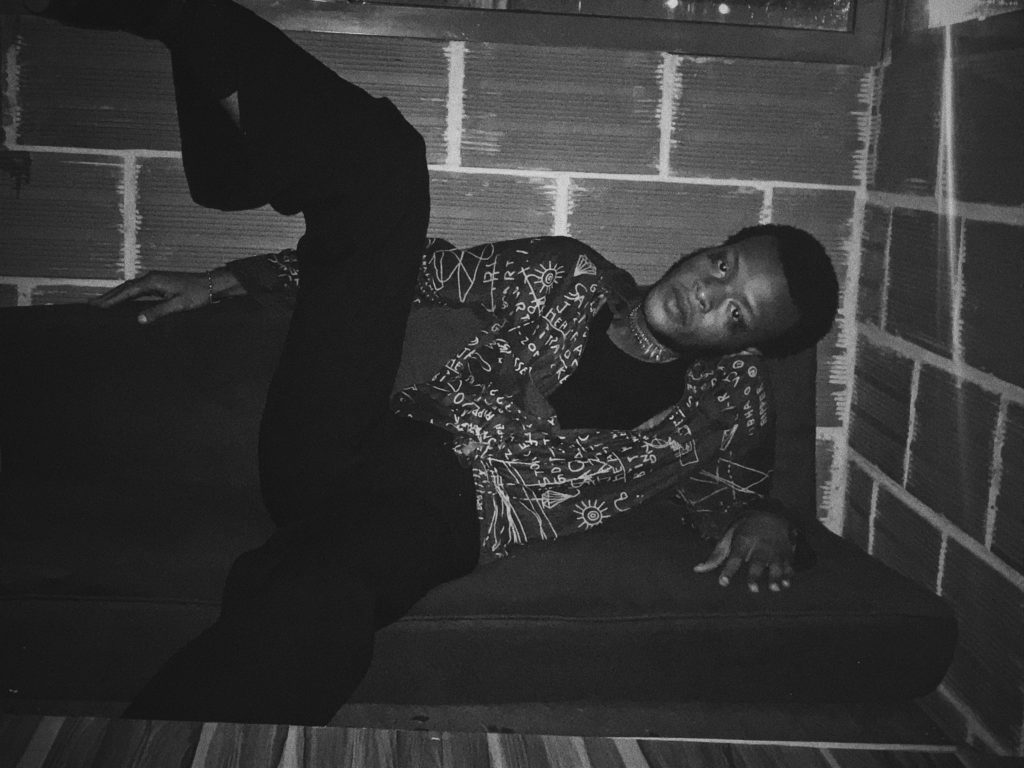
What’s your favourite career moment?
It has to be my first exhibition — Expo Lagos. It was this immersive experience where the art was projected on the walls. It’s my favourite because it was the first place I got to show my work, and it was the perfect place because my work is centred around colour and psychedelia. It was a match made in heaven.
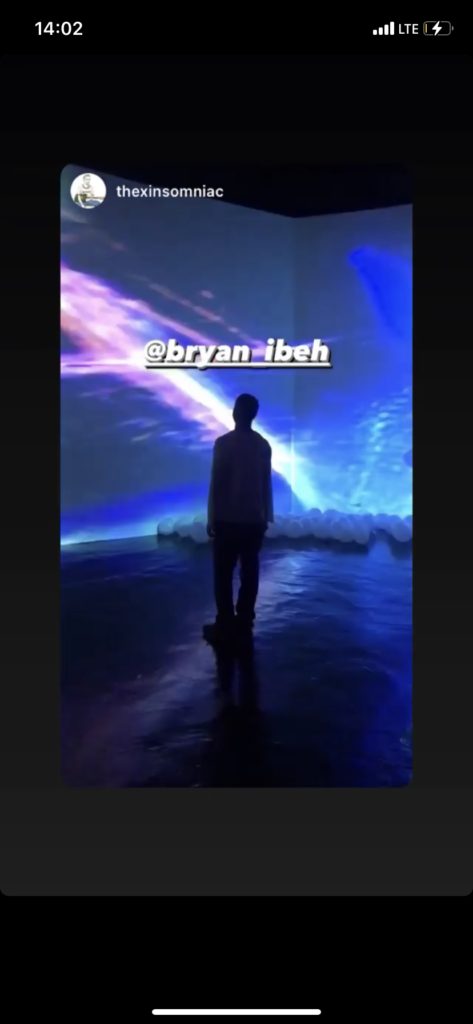
What’s your favourite thing about the work you do?
It’s having an idea, imagining it producing an intended effect and watching it happen. While working on the fashion film, there were scenes and sequences I wanted to be so uncomfortable, almost unbearable, to watch because it was strange. The audience reacted as I’d imagined to those moments. Experiencing that is the most exciting thing about being a filmmaker or creative director.
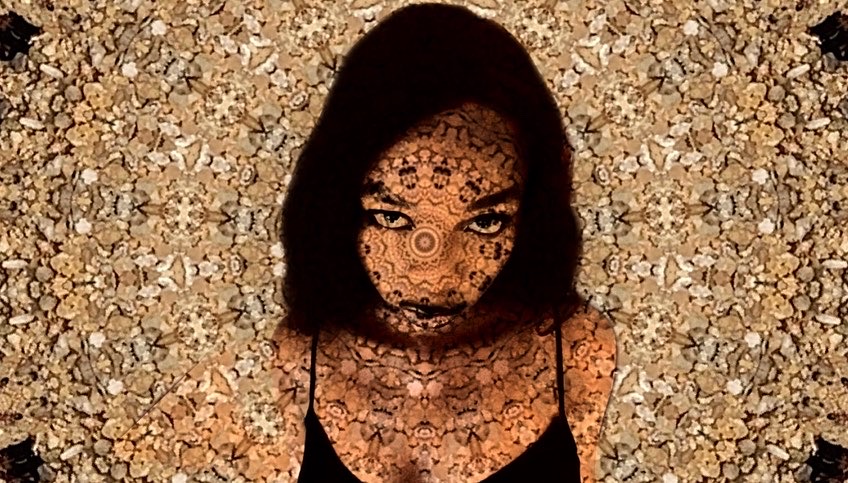
What are your plans for the next couple of years?
I’d like to release many music videos with prominent and not-so-prominent artists. I want to establish myself as an experimental music video maker. I’d like to have a portfolio that stands out because of something stylistic and specific, creating a culture around my work. Every time I make a music video, it’ll be a visual statement. I want to play my part in building the genre of experimental videos in Nigeria.
Have you gotten any comments about your work that stuck?
A friend I respect commented that he’d never seen a talent like mine. It touched me because he’s somebody I’m constantly around. It’s easy to think of something a friend does as ordinary when you’ve witnessed it many times. He saw me editing a video and said he felt very proud. Creative directing is something I started doing for fun by myself, so I appreciate when people compliment my dedication to it. It’s my life, and I hope my commitment to it shows.
